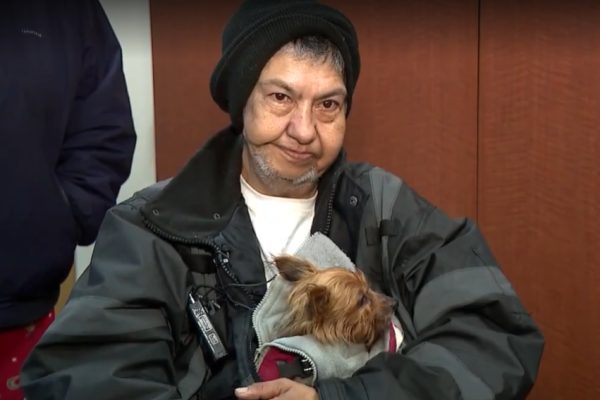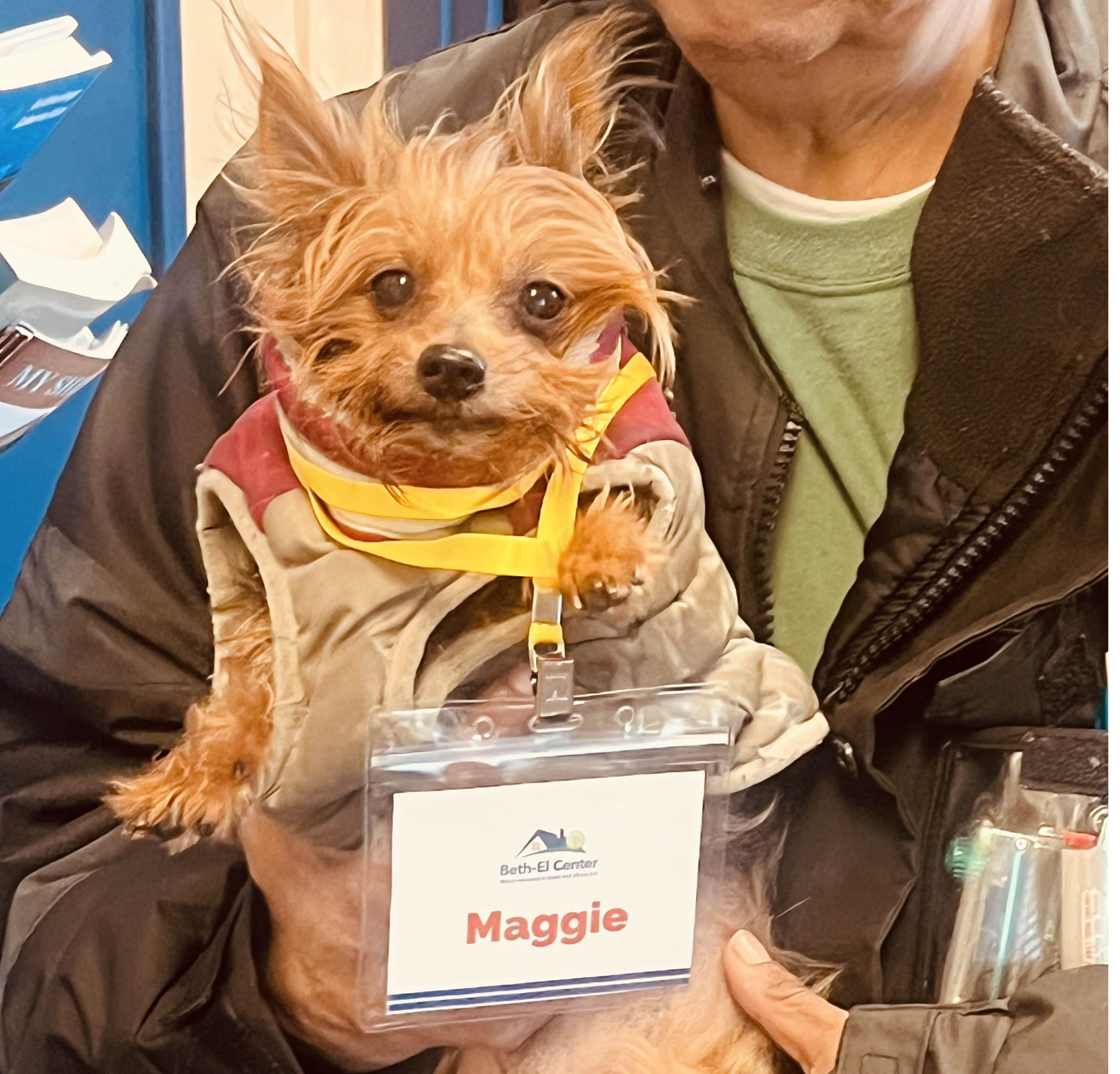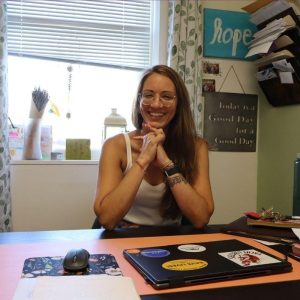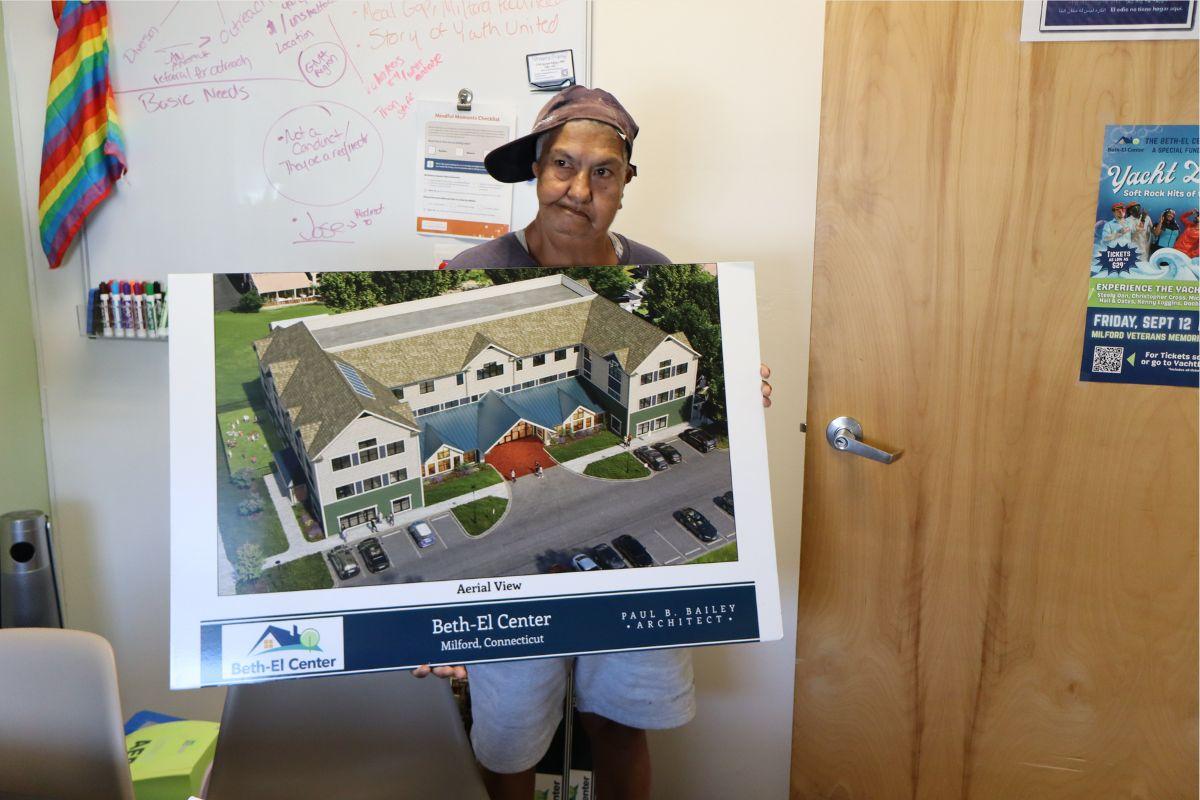Helping the Whole Person
Beth-El Center offers meaningful alternatives to the ways homelessness is traditionally addressed – and described.

In a small green space beside Beth-El Center in Milford, clients, staffers and volunteers hope to gather to honor the passing of Maggie, the 15-year-old Yorkie who spent much of her life beside Ricky Gonda.
Gonda, 63, came with Maggie to the city’s only shelter during an extended cold snap in November, when many other “No Freeze” shelters in Connecticut had reached capacity. Beth-El was not only opening new rooms to ensure they didn’t turn anyone away; they also, to Ricky’s surprise, accepted pets.

Since that November visit, Ricky has stayed in Beth-El’s emergency shelter program. Maggie took her post as unofficial greeter at Beth-El, until she passed away in late July.
For Beth-El Center Executive Director Jenn Paradis, economic poverty and relational poverty are linked. “Those two things complement and push against one another. The longer someone experiences homelessness, the poorer they get on the relational side.”
“Beth-El is not just a shelter,” Ricky said, firmly. “Beth-El is home. It’s like a little family. Sometimes I call Jenn ‘mom.’”
Ricky explained that Beth-El’s “wraparound” services can include an array of tailored needs, like mental health or drug addiction services, getting a new birth certificate or state ID, learning how to use the bus system, applying for housing, and, in Ricky’s case, arranging cremation services for Maggie. “They work with you closely and can guide you in the directions you need to go.”
As unsheltered homelessness rates continue to spike – with that figure doubling between 2020 and 2025, according to the state's point-in-time reports – Paradis pointed to the range of “economic pressures driving more people into homelessness. Wages are not keeping up with the rising cost of housing, and our housing market is increasingly privatized.”
Historically, she said, storytelling around homelessness falls short, often flattening the specificity of someone’s story in service of stereotype. “People love a really sad story and a really happy story – and life’s not like that.”

Related: We sat down with Beth-El Executive Director Jenn Paradis.
While growing up in the Hartford area, Paradis and her family experienced homelessness after her 7-year-old sister passed away. “That, to me, was the beginning of what ultimately ended up with my parents’ home being foreclosed on."
Now, as executive director of Beth-El, and a part of the Community Foundation’s network of Basic Needs Fund grantee organizations, Paradis says she hopes to redefine how basic needs are met – and how they are considered within the community. “Many of us receive basic needs without knowing it.”

As the organization awaits the completion of a new $16 million facility, Paradis dreams that, “if I could take the walls off this building, I would. This building is for everyone, and there should be no secret of what happens here. It shouldn’t feel so distant. I feel like people engaging with us are either receiving services or volunteering. Both of those are great, but there’s a third option of just being connected in a way that doesn’t make you feel like you have to serve or be served.”
In recent weeks, Ricky has begun leading a new “Open Door Fridays” tour series at Beth-El Center.
Paradis says that “we must recognize that the big moments – like becoming housed after experiencing homelessness – are made possible by smaller moments, when someone’s basic needs are met. A bottle of water, band-aids, a sleeping mat, or a warm meal can be the foundation for trust and connection. Basic Needs Fund grants are a lifeline in making these moments possible.”
Give to the Basic Needs Fund
